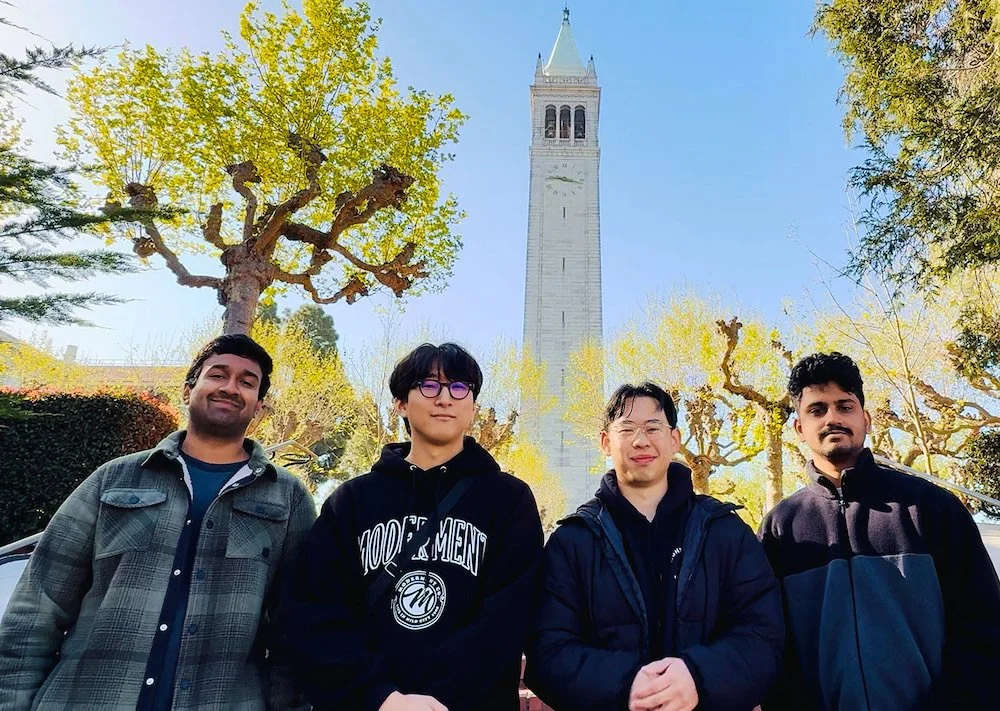Anchor Logics’ Smart Vest Uses AI to Improve Patients Balance
Two years ago, mechanical engineering student Joel An approached Nathan Hsu, his friend in the undergraduate Robinson Life Sciences, Business, and Entrepreneurship Program at Haas, with a business question. An, BS 25, (mechanical & aerospace engineering), had created a weighted vest that helped his mom navigate walking issues caused by Ataxia, a neurological condition that impacts balance. He wanted to make the vest available to the public, but didn’t know where to begin.
Anchor Logics cofounders Joel An and Nathan Hsu (middle) with Chief AI Officer Ashok Sundararaman, MIDS 24, (left) and Chief Product Officer Srinikhil Vemuri, MEng 25 (right).
After talking, the pair went on to found startup Anchor Logics, which is working to commercialize the wearable technology. Since launching last year, Anchor Logics has taken steps forward, receiving support from Berkeley SkyDeck’s Pad-13 incubator for early-stage start-ups and the National Science Foundation I-Corps. The team recently nabbed third place at the UC LAUNCH 2025 Demo Day, winning $10,000.
Alongside Ashok Sundararaman, MIDS 24, and Srinikhil Vemuri, MEng 25, the team has tested the smart vest on 214 patients with conditions ranging from Alzheimer’s and Parkinson’s disease to multiple sclerosis and stroke. Pre-clinical trials showed the vest improved patients’ balance and speed and decreased their risk of falling by 37%.
“We’ve watched people’s balance improve and their gait stabilize,” said Hsu, BS/BA 24, who has served as Anchor’s CEO since he graduated. “Physical therapists have emailed us saying, ‘I’ve worked with ataxia patients for a lot of my career, and I used to think it was nearly impossible to improve their gait, but your vest changed all of this.”
For Hsu and An, the work started as a side project to help more people like An’s mom improve body position and foot landing when walking.
They didn’t imagine it would turn into a business until An took the vest to South Korea and reached out to patient groups online to see if they were interested in testing it. Some of these patients wore the vest to their medical appointments. They reported back that their doctors were surprised and impressed, which led Hsu and An to run their first preclinical trials in South Korea.
Their first product is a wearable vest called PIEZO, (the Greek word for pressure.) The team is now building the second iteration of the vest, incorporating computer vision in addition to artificial intelligence.


